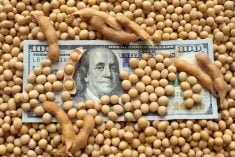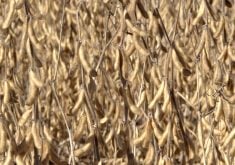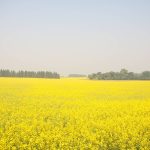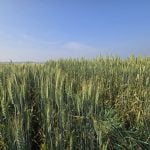Ontario’s corn and soybean growers and seed dealers will have slightly more time to manage some of their new duties as the province’s limits on neonicotinoid pesticides become legally binding.
Ontario’s environment ministry on Tuesday announced its new provincial regulations — with a handful of changes from the draft legislation first published in March — have formally become law and will be phased into effect starting July 1.
Once fully phased in, the regulations will require farmers who use neonic-treated corn and soybean seed to take training in integrated pest management (IPM) practices, and to get pest assessments and/or scouting on fields before treated seed can be used.
Read Also

U.S. grains: Soy futures set 15-month high after China agrees to purchases
U.S. soybean futures reached a 15-month high on Thursday after President Donald Trump’s administration said top-importer China agreed to buy tens of millions of tons of American crops in the next few years as part of a trade truce.
Vendors of treated seed in Quebec or other eligible jurisdictions won’t have to be licensed to sell treated corn or soybean seed to Ontario growers, but the farmers will still have to meet Ontario requirements before they use any treated seed they’ve bought elsewhere.
The regulations will also seed and input dealers to get vendors’ licenses ($200 per license, valid for five years) to sell treated seed to farmers, to ensure untreated seed is available for purchase, and to report their sales of both treated and untreated seed annually to the environment ministry.
The new rules also bring corn and soybean seed treated with any of the three main neonics — imidacloprid, thiamethoxam and clothianidin — into their own separate class under the provincial Pesticides Act, which already has a schedule of penalties and fines in place for any breaches of the new regulations.
The new class won’t include treated corn or soybean seed sold to certified seed growers for seed production, nor to growers of sweet corn or popping corn.
Free IPM training
Based on input from the public comment period following the draft regulations’ release in March, the province also said Tuesday it will allow farmers “additional time” to take the IPM training.
Growers who expect to plant neonic-treated corn or soybeans anytime after the 2016 growing season will instead have until the end of August 2016 to take the IPM training. The province also announced Tuesday it will cover the cost of the IPM training until September 2016.
Provincial officials said Tuesday they’re in discussions with the Ontario Agricultural College at Ridgetown to deliver the IPM course but haven’t yet finalized costs. More information on IPM courses is expected to be available in August, the province said.
Pest assessments
The province also said Tuesday it will extend the expiration date of a pest assessment report by two months.
From Aug. 31 this year to Aug. 31 next year, any farmer will be able to conduct his or her own soil pest scouting, perform pest assessments and prepare his or her own pest assessment. From Aug. 31, 2016 to Aug. 31, 2017, farmers who’ve got IPM certificates can run their own pest assessments.
Beyond Aug. 31, 2017, the previously-announced requirement that a professional pest advisor must conduct soil pest assessments and prepare a report will instead be phased in “over time, on a geographic basis, to best target regions with the greatest pollinator mortality rates.”
The final regulations will also now allow pest assessments to be done by “other people,” such as students, if supervised by professional pest advisors. Such advisors, for the purpose of the new regulations, must be Certified Crop Advisors (CCA), professional agrologists specializing in pest management, or otherwise equivalent.
Vendor rules
Starting this year, treated seed vendors will need to submit a List of Class 12 Pesticides Submission Form to the environment ministry for Class 12 pesticides they’ll have available to sell to farmers through their operations by July 31 every year.
The final regulations released Tuesday will now allow vendors to “continuously” provide updates to the list of neonic-treated corn and soybean seed, giving them “additional flexibility as new seeds could come to market” in mid-season.
Sales reps working on behalf of licensed vendors will have some “special responsibilities” under the new regulations but won’t require a license themselves, the province said Tuesday.
“Direct-to-farm” seed vendors won’t need a licence, the province added, but they will have “some regulatory responsibilities, similar to those that apply to treated seed sales representatives.”
The province on Tuesday also pledged it will “publicly” report amalgamated sales and seed treatment data for neonic-treated corn and soybean seed, “to the track the effectiveness of the regulation.” — AGCanada.com Network












